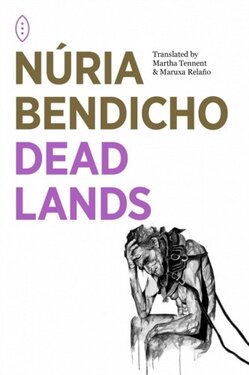Dead Lands (2021, tr: Maruxa Relaño & Martha Tennent, 2022), by Núria Bendicho, is a southern gothic in northeastern Spain, occupying a grim Faulknerian microcosm in and around a Catalonian mountain village all but lost to time, to hope, and to God. It’s a place where men are barely above animals and life is ground out day by day.
While the will to live is evident, the choices within those lives invite questions of their inevitability. One girl, on finding herself pregnant notes, “life was leading me down that path”. No other way seems possible. The issue of free will recurs throughout. Was the priest, unfit for the cloth, ordained to be a man of God by virtue of being a second son? Does the prostitute really believe her situation is preferable to that of other women? When you know no other life, your lot seems written and its acceptance the only option.
For all the lives in Dead Lands, it centres on a death. Jon is the middle child of the Capdevila family and has been shot in the back. The central mystery turns on who, within the family, killed him. But there are greater mysteries to unravel too, notably around how others react to his death. Why do they act the way they do? How has their life wrung out of them their responses?
Within its thirteen chapters, each given over to a separate character, we get a peeling-the-onion tale as we discover Jon’s killer, but learn so much more about the people. Each narration has enough variety in their content to keep it interesting, and their stories allow the murder at its heart to expand over years as we get a wider timeline where small details in one telling become massive in another’s. The structure recalls Akutagawa’s short story, In A Bamboo Grove (better known for the movie Rashōmon) with the victim having their say.
Dead Lands is the kind of novel that rewards rereading as revisiting testimonies with foresight shows its people anew. Rendered in thick, claustrophobic and grubby prose, its world may be limited but its story is universal and, although centred on Jon’s death, the bigger concern is that under man’s command, unashamedly, both woman and the land, symbols of fertility, ultimately suffer.
